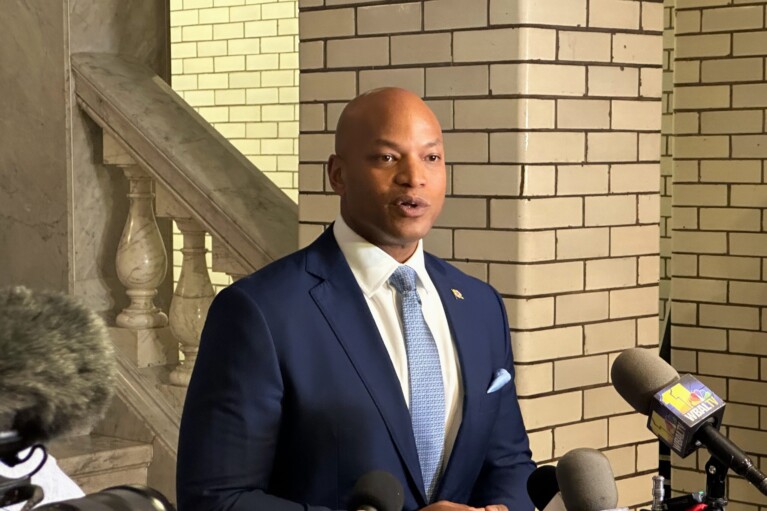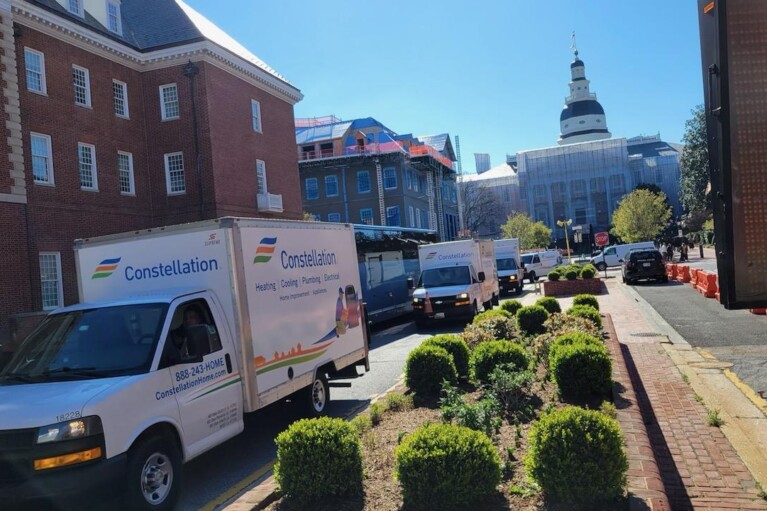Country Clubs Prevail Again in Montgomery County Delegation
A Montgomery County bill to impose fees on tax-capped country club properties puttered to a halt Friday after it was narrowly voted down by the county’s delegates.
The measure, from Del. David Moon (D), has been introduced before. But this time the measure picked up extra support from newly elected delegation members. Nevertheless, the 2019 iteration of Moon’s bill failed in an 11-13 vote on Friday morning.
The goal of Moon and freshman Del. Vaughn Stewart (D), who worked extensively on amendments to lobby support for the bill, is to alter 10-year agreements with the State Department of Assessments and Taxation that allow land owned by a golf course or country club to be assessed at $1,000 per acre.
The property tax break was first introduced in state law to dissuade country club and golf course owners from developing their land.
But the tax break results in a considerable loss of revenue for county governments, and Montgomery County is predicting a $40 million-plus budget shortfall this year.
The actual market rate assessments for golf courses in the county with the agreements ranges from $12,500 per acre to close to $1.1 million per acre, according to a fiscal and policy note.
Fifteen golf courses and country clubs – equaling about 3,000 acres of land – in Montgomery County have special use assessment agreements with SDAT.
This year’s bill sought to amend the agreements for the four properties with a per-acre assessment over $500,000: Bethesda Country Club, Chevy Chase Club, Columbia Country Club, and Kenwood Golf and Country Club. After amendments, the measure would have imposed a $100,000 payment-in-lieu-of-taxes (or PILOT) fee for those four courses.
Stewart said there are nearly 700 PILOT fees set in the state, often to provide local governments with some payment for land that would otherwise be exempt from property tax payments.
Some members of the delegation said the bill had been amended so heavily that it singled out four properties in the county with a relatively small increase to local revenue.
What started as a measure that would have assessed market-rate property taxes for land value over $500,000 an acre had become a $400,000 annual payment.
“The juice is not worth the squeeze,” said Del. Ariana B. Kelly (D-Montgomery).
Del. Pam Queen (D-Montgomery) said the legislation once amended targeted four specific properties and lawmakers should not set policy ZIP code-by-ZIP code.
“Whether it’s the low-rent district or the high-rent district, it’s not the way we set public policy,” Queen said. “…How do you answer that as fair policy?”
Del. Kirill Reznik (D-Montgomery) said the legislation had been whittled down to what amounted to an ideological statement, instead of a revenue generator.
“Is this the ideal way to do this? No. The ideal way to do this is to assess the properties at a fair rate,” Moon said.
Stewart said none of the amendments were meant to be mean-spirited or targeted. He described amending the bill as a game of whack-a-mole; address one concern and another popped right up.
“We can’t win,” Stewart said. “…At the end of the day, what this was supposed to be about is the clubs that can afford to pay a little bit extra money, so the county can address a little bit of its budget shortfall, should be able to do so.”
The members of the county delegation who voted in favor of the measure were Dels. Gabriel Acevero, Alfred C. Carr Jr., Lorig Charkoudian, Bonnie Cullison, Eric Luedtke, Moon, Julie Palakovich Carr, Emily Shetty, Jared Solomon, Stewart and Jheanelle K. Wilkins.
After the vote, Moon said he will continue to pursue similar legislation in the coming years.
“If you look out into the world today at wealth inequality, you try to look at little ways to ameliorate that in your own county,” Moon said. “This country club tax break deal is probably the most glaring and obvious example of unfair tax policy.”
Patrick “P.J.” Hogan, a former Montgomery County state senator and lobbyist who represented a coalition of golf and country clubs, was pleased with the result.
“The majority determined this was not sound tax policy,” Hogan said. “…The statute that set up this program is statewide. And that’s how it should be addressed, statewide, not on a ZIP code-by-ZIP code or property-by-property basis.”
A separate bill that would have restricted access to the tax agreements based on compliance with a local Montgomery County law governing pesticide use on private lawns was withdrawn earlier this session.
Editor’s note: This story was updated to correct the posture of the pesticide bill.




 Creative Commons Attribution
Creative Commons Attribution